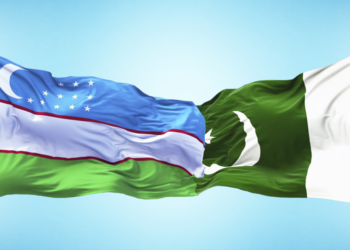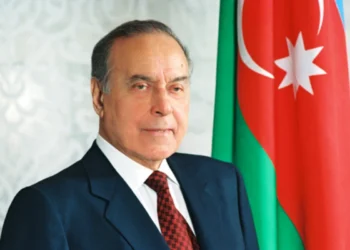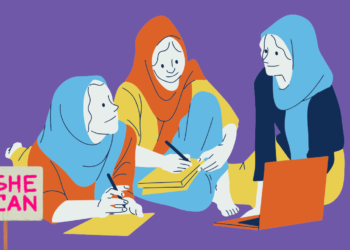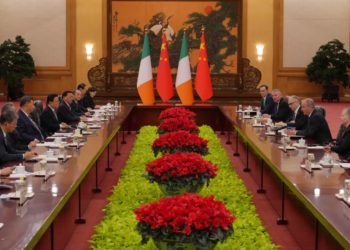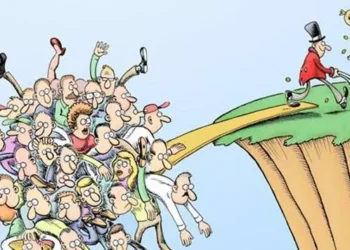Dr. Furqan Rao
Renowned for its rich cultural heritage, scientific achievements, technological innovation, and global influence, Russia stands as a nation that continues to foster cooperation across continents. Among its trusted partners in Asia, Pakistan has steadily emerged as a nation of strategic importance; Pakistan’s collaboration with Russia has deepened through mutual respect, shared interests, and a growing spirit of partnership.
Diplomatic relations between Pakistan and Russia were officially established in 1948, marking the beginning of a longstanding association. Over the decades, the two nations have witnessed a transformation in their ties from a period of limited engagement and Cold War era mistrust to a strategic relationship encompassing trade, culture, energy, defense, education, health, and, more importantly, to enhance people-to-people ties, which lacked in the past. However, over the last more than seven years, the relations have been improving, and trust is gaining momentum because of the mutual interests of both countries and the rapidly changing and reshaping geopolitical landscape.
The Shanghai Cooperation Organisation also played a key role in bringing the two countries closer, as Russia supported Pakistan in the process of membership in the SCO. Now, during the recent SCO forum in September 2025, Prime Minister Shehbaz Sharif’s meeting with President Vladimir Putin in Beijing reaffirmed this upward trajectory, with both leaders highlighting their commitment to deepening collaboration, particularly in trade, agriculture, transport, pharmaceuticals, and steel.
Trade relations have seen steady progress through platforms like the Inter-Governmental Commission (IGC), which has played a central role in identifying new areas of partnership. In the pharmaceutical sector, joint ventures between Pakistani and Russian companies are paving the way that not only strengthens health cooperation but also contributes to affordable healthcare access in Pakistan. This collaboration underscores the potential of Russian expertise and technology in advancing Pakistan’s pharmaceutical and medical industries.
The bilateral trade volume between Russia and Pakistan witnessed a significant surge in 2023, reaching more than $ 1 billion. This shows that momentous and historical increase compared to the previous year, highlighting the growing economic ties between the two countries.
Most importantly, Pakistan also witnessed Russian cooperation even in the 1970s and 1980s “Back in the 1970s, when the Soviet Union played a pivotal role in establishing the Pakistan Steel Mills in Karachi a landmark project that stood as a symbol of our enduring friendship, and in the current era, we are again witnessing a renewed momentum in our bilateral cooperation, marking a revival of that historic partnership in multipule sectors and reviving relations only at Parliamentary level but also at people to people.
Russia has also been opening its doors to the international world by conducting seminars and forums that promote dialogue, innovation, and international collaboration. The forums, such as the St. Petersburg International Economic Forum, brought experts from 144 countries, providing a platform for countries like Pakistan to explore new opportunities in trade, investment, and sustainable development. Similarly, initiatives like the Global Digital Forum, in which 116 countries take part, offer learning about AI and other advanced technological developments, and the World Youth Festival, uniting young minds from around the globe, highlight Russia’s commitment to fostering international collaboration in exploring different cultures and youth engagement. The opening up of Russia for the world is also providing opportunities for over 64 % of Pakistan’s youth to explore education, employment, and business prospects, making it an alternative destination for students apart from Western countries. Presently, the number of Pakistani nationals in Russia is approximately 1200.
From educational prospects, both countries are also enhancing cooperation, and the visit of a high-level Russian delegation in 2024 opened new doors for academic cooperation, focusing on partnerships between universities, joint research initiatives, and technology-driven education. Both sides agreed to establish a Russian Facilitation Centre in Islamabad and host a Russian Educational Expo, marking 2025 as a pivotal year in Pakistan-Russia educational collaboration. Such initiatives are helping young Pakistanis access world-class Russian institutions while fostering cultural understanding and knowledge exchange.
Following the Russia-Ukraine conflict, the establishment of the Global Fact Checking Network (GFCN) marked a significant effort by Russia to counter misinformation and strengthen fact-based communication on a global scale. Through forums such as “Dialog about Fakes 3.0”, Russia is taking a commendable step toward promoting media integrity and combating misinformation, which is an area of growing global concern. These international efforts demonstrate Russia’s leadership in fostering responsible journalism and truth-based communication.
Moreover, Russia is also supporting and playing a significant role in getting Pakistan’s BRICS Membership, which it applied for in 2024. In such a scenario, besides having cordial relations with European countries, the government of Pakistan should also prioritize relations with Russia, as it could be beneficial not only at the global level but also bring opportunities for the business community and youth. Therefore, Pakistan must continue to strengthen its bilateral and economic relations with Russia, because by deepening ties, Pakistan can diversify its international partnerships, while Russia can expand its influence and economic reach in South Asia.

The writer is a senior journalist, GFCN Expert, ED CDCS, a former fellow of ICFJ, and a PhD from Tsinghua University. He can be reached at furqanrao68@yahoo.com.





















































